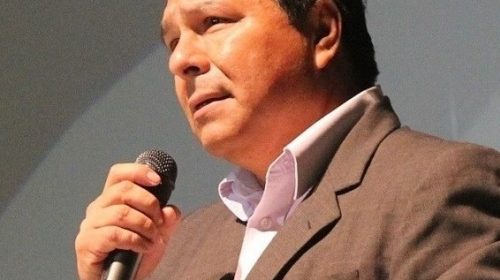By José Alberto Gaytán García*
Professor William E. Rees, a scientist at the University of British Columbia, Canada, is one of the creators of the Ecological footprint concept, an indicator that measures the impact of hectares in the way we live and consume resources on the planet. This indicator has become a useful tool for scientists, governments, institutions and businesses, allowing warning of the risks entailed of over exploitation of natural resources. Recently, Professor Rees has announced another interesting proposal known as global “green cities”, which is to convert the most advanced industrialized cities in the world into sustainable metropolis, clean and free from contamination.
In the last decades the ecological initiatives have become important in some regions of the world, especially in the European Union (EU). For the governments of the 27 member countries of this political community, where 80 percent of its population (400 million people) lives in urban centers, it represents an enormous challenge to properly take advantage of urban spaces and natural resources remaining. As part of its policy and commitment against climate change, the EU decided to create the “European Green Capital” award, in order to reward the efforts of European cities on environmental issues. The cities that have received this honorable award include: Stockholm in 2010, Hamburg in 2011, Vitoria-Gasteizen 2012 and Nantes 2013. The notice for 2014 is already open, European cities of over 200,000 inhabitants can register. The evaluation committee will rate the performance of cities on environmental policies, transporttation, housing, land and water use, waste management, waste and energy consumption that will improve the quality of life of its inhabitants and help them to deal with the large environmental challenges facing humanity such as climate change.
Not only Europe is advancing in this issue, in our continent we have the remarkable case of Curitiba, Brazil, the “greenest city in Latin America”, according to a study by the influential British magazine The Economist. According to the publication, this Latin American city is noted for its innovative ideas and environmental projects that have been implemented to improve the environment and the surroundings in which its inhabitants live.
The Economist notes that Curitiba won the title of “green city” thanks to 40 years of work on environmental issues and its privileged geographical situation, since from the six rivers that cross the city, its inhabitants only use hydropower. This geographical advantage, in turn, results in lower emissions of carbon dioxide: 70 kilos per person per year, when the average in Latin America is 220 kilos per capita. Also Curtibia’s program “Garbage Purchase”, allows people to exchange their garbage for bonds to buy food. This program allows the city to collect seven thousand tons of garbage a year.
If Curitiba began working for the last forty years to reach the status or level of “green city”, then what are we waiting for in Veracruz to achieve our “green cities”. Can you imagine our stately Misantla, newly renowned “Jewel of Veracruz” for its natural beauty and rich history, transformed into a cleaner city, with streams that do not contaminate it, sustainable, greener and more beautiful than it is now?, sounds good, right?
Well let’s get to work together, each from his trenches, so that our environmental authorities will catch up to the challenges that this initiative demands and expedite the process before the State legislature to the initiative “Green Cities” of Veracruz.
jalbertogaytangarcia@gmail.com
A83R6/17
Acerca del autor

- José Alberto Gaytán García ha escrito artículos y ensayos de corte académico en diarios y revistas de México y de los Estados Unidos; ha participado en importantes proyectos académicos e impartido conferencias sobre temas de historia, tecnología y educación en el marco de las relaciones entre México y los Estados Unidos, tema en el cual realizó sus estudios de doctorado en The Graduate School of Internacional Studies de la Universidad de Miami.
 Cultura General10 agosto, 2022Michio Kaku: científico del futuro
Cultura General10 agosto, 2022Michio Kaku: científico del futuro Cultura General29 junio, 2020Miguel Alcubierre: viajero de las estrellas
Cultura General29 junio, 2020Miguel Alcubierre: viajero de las estrellas Cultura General6 abril, 2020Niños brillantes (Segunda parte)
Cultura General6 abril, 2020Niños brillantes (Segunda parte) Cultura General6 abril, 2020Niños brillantes (Primera parte)
Cultura General6 abril, 2020Niños brillantes (Primera parte)





